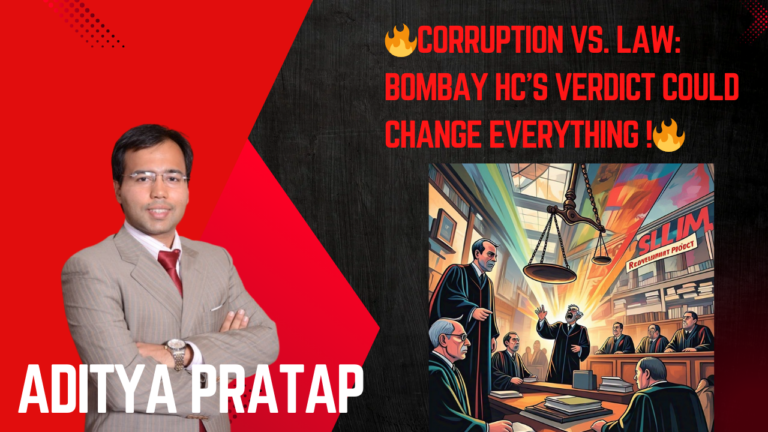
Introduction
Mumbai is a city of stark contrasts, where modern skyscrapers stand alongside sprawling slums. Millions of people live in these informal settlements without essential services such as clean water, sanitation, and proper roads. A significant number of these slums are located within Coastal Regulation Zones (CRZ), areas where construction is strictly controlled to protect the environment. While these environmental laws serve a crucial purpose, they have inadvertently hindered slum redevelopment, trapping thousands of families in unsafe and inadequate housing conditions.
A key obstacle to redevelopment stems from the CRZ Notification of 2011, which mandates that slum rehabilitation in these zones must be government-led, with the government holding a minimum of 51% ownership. This policy discourages private investment, leading to prolonged delays in redevelopment. Paradoxically, luxury real estate projects often receive exemptions, allowing affluent developments to proceed while slum dwellers remain in deteriorating conditions. This raises pressing legal and ethical concerns: How can we strike a balance between environmental conservation and the fundamental right to shelter? And is it justifiable that some benefit while others suffer due to restrictive policies?
The Core Issue: Policies That Hinder Redevelopment
The biggest flaw in the current regulations is their obstruction of progress. Private developers, who could play a crucial role in upgrading slum areas, are deterred by the requirement of government majority ownership. As a result, redevelopment is either extremely slow or entirely stalled. Meanwhile, luxury construction projects in CRZ areas continue to gain approval, exposing a clear double standard.
While affluent residents enjoy newly built high-end apartments in CRZ zones, slum dwellers remain in hazardous conditions. Many of these settlements are in flood-prone regions, lack proper sanitation, and are at constant risk of fires or building collapses. The longer redevelopment is delayed, the more these residents suffer, worsening their already dire living conditions. Instead of alleviating their struggles, existing policies have only deepened their hardships.
Legal and Humanitarian Concerns
1. Ensuring Fairness for All
In an equitable society, all citizens should receive equal treatment. However, the current CRZ policies unfairly discriminate against slum dwellers by restricting their redevelopment while allowing luxury projects to move forward. This results in a system where the wealthy benefit while the poor are left behind. If Mumbai aspires to be a truly modern and inclusive city, all its residents—regardless of economic status—should have access to safe and dignified housing.
2. The Fundamental Right to Housing
The Supreme Court of India has upheld that housing is a fundamental right under Article 21 of the Constitution. Yet, under current regulations, slum dwellers are denied the opportunity to improve their homes. Many have lived in these areas for decades, actively contributing to Mumbai’s economy, yet they are treated as encroachers rather than legitimate residents. This is not only unjust but also a violation of their basic human rights.
3. A Need for Policy Reform
The recent intervention by the Bombay High Court presents an opportunity to rethink outdated policies. Instead of restricting redevelopment, the government should promote private sector participation while ensuring environmentally sustainable development. Modern urban planning approaches—such as constructing high-rise buildings with integrated green spaces—can help reconcile environmental concerns with housing needs. By working collaboratively with private developers instead of imposing rigid restrictions, redevelopment can be expedited, ultimately benefiting all stakeholders.
Furthermore, slum rehabilitation should not be solely about constructing new buildings—it should aim to enhance the overall quality of life for residents. Government policies must reflect this goal by simplifying, rather than complicating, the redevelopment process. A system that welcomes private investment while safeguarding the rights of slum dwellers can pave the way for meaningful change.
Conclusion: A Step Towards Justice
The Bombay High Court’s scrutiny of CRZ regulations is a welcome step toward necessary reform. The current framework has proven ineffective, as it hinders slum rehabilitation while permitting luxury developments to thrive. This imbalance must be rectified to ensure that Mumbai’s urban growth benefits all its residents, not just the privileged few.
A fair and progressive policy should seek to bridge the gap between environmental conservation and human rights. As Mumbai continues to expand, rigid and outdated regulations will only perpetuate inequality and suffering. The focus should shift from blocking redevelopment to implementing smart, sustainable solutions that benefit everyone.
Moving forward, policymakers, urban planners, and the judiciary must collaborate to create a balanced approach—one that safeguards both ecological interests and human dignity. Only then can Mumbai evolve into a city that truly serves all its people, irrespective of their socio-economic background.

About the Author
Aditya Pratap is a practicing lawyer and founder of Aditya Pratap Law Offices based in Mumbai. An alumnus of NALSAR University of Law, Hyderabad, he has over 11 years of experience and has handled numerous cases of public and private significance. For more insights, you can visit his website: adityapratp.in. Watch him in TV interviews.